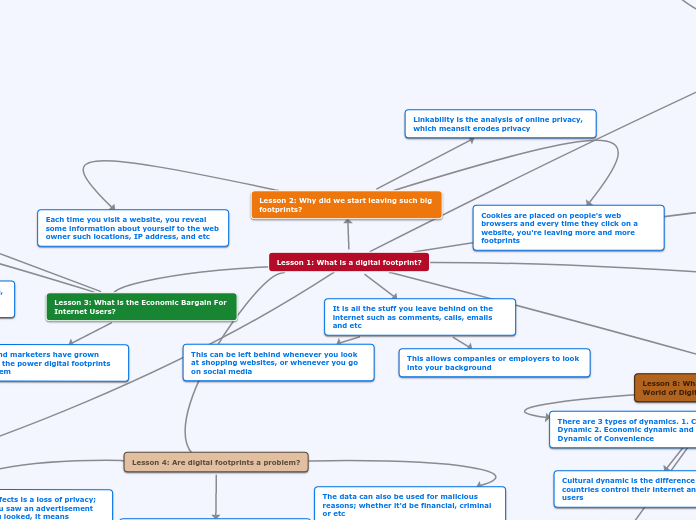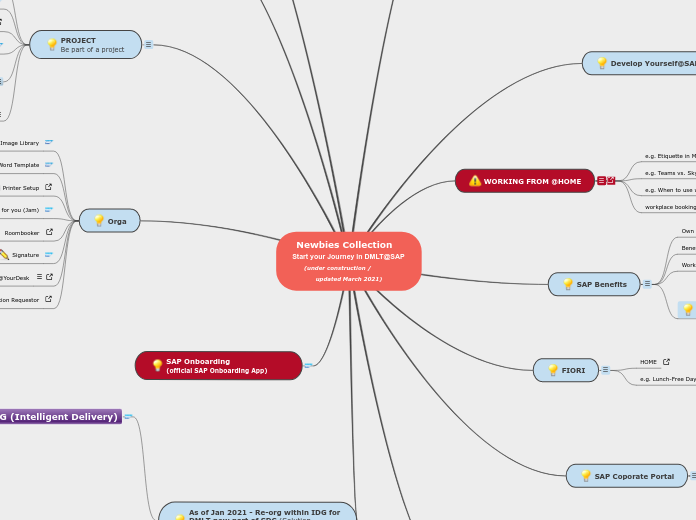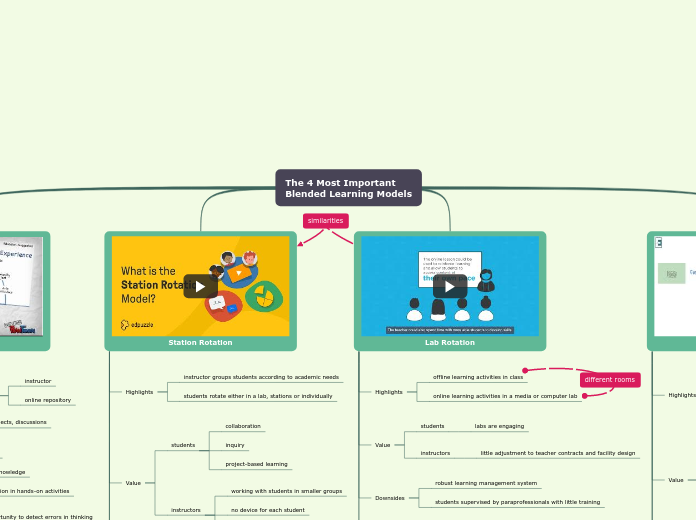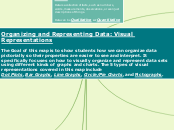EDUC 5013Q Final Thoughts
Week 4
Self/Peer Assessment
Important to model to students how to assess another person’s or their own work
Be mindful of bias in student's marking
Allows students to make individual learning goals, increases responsibility for own learning
Exit ticket: Apps such as Flipgrid can be used for students to self-assess their learning (ex. what they think they did well and areas they could improve). This would be an effective way for students who dislike reading/writing to represent their learning.
Use criteria to monitor their progress towards achieving the learning goals
Recognize, describe and apply success criteria
Rubrics
Effective and consistent means of assessment
A scoring scale that consists of a set of achievement criteria and descriptions of levels of achievement
Ensure that students are given adequate time to improve their work based on the feedback they are given
"Where am I going, where am I now, and how can I close the gap?"
Tells student what they did well, what they need to work on, and what to do in order to get there
Effective feedback begins by saying what the learner has done well, progresses to areas the learner could have done better and ends on a positive note
Provides students with a description of their learning
Provides evidence for reporting purposes
Allows teacher to make sound programming decisions
Provides a clear picture of students’ strengths, challenges and next steps
Markbook
Checklists
Can list actions, descriptions, skills, concepts, processes, and/or attitudes
Can chart progress over time
Focused diagnostic tool
Anecdotal notes
Ongoing and holistic
Identifies strengths and challenges
Short, objective description
Week 5
Formative assessment
The bridge between today's lesson and tomorrow's
10 principles
10. Repeat the process
Assessment allows for planning of the next learning experience
9. Plan instruction around content requirements and student needs
You can't teach the class as a whole - know similarities and differences of students
8. Look for patterns
Find patterns that point the way to planning classroom instruction that is manageable and progresses students
7. Engage students with formative assessment.
Rather than being in the driver's seat, give students autonomy in their learning
Shape feedback more as dialogue rather than as information transmission – student has the opportunity to engage the teacher in discussion about that feedback
To build self-regulation, students need opportunities for self-monitoring and the judging of progression
6. Assess persistently
Observe, look for clues, ask for input
"A great teacher is a habitual student of his or her students."
5. Make feedback user-friendly.
Should result in a student thinking about how to improve
4. Provide instructive feedback
No "good job"s or "nice work"
3. Make room for student differences
Be flexible about how students show what they can do
2. Begin with clear knowledge, understanding, and dos
What matters most for student success?
1.Help students understand the role of formative assessment
Success = sustained effort and mindful attention to progress
Students may not focus on the feedback as much as the grade they are given – students should be guided into the appropriate use of feedback and be given the opportunity take the required action
Feedback vs. Feedforward
Feedforward
Uses talent, provides "what if"s, is focused, authentic, prompts a step-by-step plan
Exit ticket -2.00 thought on feedback:
"Feedback is essential to let students know where they are, where they should be and how to close the gap."
Feedback
Affirms what the student already knows, points out problems, is nice, doesn't offer a plan, is top-down
Week 6
Data collection
Using data usually falls into 4 areas:
4. To ensure accountability
3. To help think about program choices and policy
2. Make decisions to support student options/placements
1. Change your instruction
Week 3
The Kindergarten Program
Documentation of learning
Observational notes
Digital recordings
Student portfolios
Artifacts and representation
Four frames
Self-regulation and well-being
Problem-solving and innovating
Demonstrating literacy and math behaviours
Belonging and contributing
Importance of relationships
Invite parents and community members to visit
Keep lines of communication open
With students, parents and teaching partner
Play-based learning
Child makes sense of their world
Imaginative play builds social, cognitive and language skills
I haven't had a placement in FDK yet, but I observed play-based learning in my Grade 1 placement. Every Friday, the students were able to play freely for the last block of the day. During this time, I saw students developing social, cognitive and language skills as they interacted with each other. Some would play 'house', others would pretend to be teachers with a classroom, and others would build with blocks. This imaginative play required a lot of interpersonal skill such as communicating the rules of the game, taking suggestions from peers and sharing. It demonstrated to me that young students should always have opportunities for play in the classroom to develop such important skills.
Co-construct learning - you provide the environment and children manipulate it to further their learning
Learning environment is the third teacher
Inquiry
Young children are capable of complex thinking
Teacher's role is to plan what the children will interact with, and get down and engage with them and the centers
Week 2
Achievement Chart
Guides assessment tasks and tools
Helps with giving consistent and meaningful feedback
Encompasses all curriculum expectations
Helps plan instruction
Fairness
Make accommodations
Criteria should support student learning
Fairness in assessment and evaluation is grounded in the belief that all students should be able to demonstrate their learning regardless of their socio-economic status, ethnicity, gender, geographic location, learning style, and/or need for special services (Volante, p. 34).
I think that this is a difficult concept for people to grasp, because they think that it is UNFAIR to accommodate students (for example, by letting them present their work in a different way or to complete less questions). However, we must remember - how does this impact the other students? Why should it matter to anyone else? The students who are stronger will not be affected in any way if struggling students are helped along the way.
Ontario Student Record (OSR)
IEPs, previous report cards, references
Exit ticket: How can it support your teaching practice? It outlines core skills to look for prior to assessing students to ensure that they are meeting grade expectations.
Areas we assess
Thinking
Use multiple tools and sequence them
Reasoning
Communication
Knowledge
Meaningful and significant
This knowledge has to be applicable in context
Application
Requires students to choose the appropriate tool or get necessary information
Week 1
Grading DON'Ts
Don't give marks for homework or practice
Homework is to to reinforce learning and to help students with skill mastery. It should be checked/assessed but not given a score.
Don't determine a grade from ALL evidence collected over time
Use several sources to collect evidence (observations, conversations, and student products)
Use most recent and consistent grades (parachute packing example)
Don't give bonus marks
If it is worthy of extra credit than it is worthy of learning and should be evaluated on its’ own merit
Don't base grades on unclear targets
Students need success criteria or it is unfair to test them
Don't apply late marks
Create a culture of responsibility - students won't do the work if you deduct their grade
Don't combine attitude and effort with achievement
Should not reflect amount student has tried - should reflect how close a student comes to meeting the learning target
When combined, it is called "score pollution"
Don't give zeros
Rarely effects the learning done by the student - use a 5 point scale instead
Exit ticket: this point surprised me because I have always had classes where getting a zero was possible. However, it makes sense because when a child (who likely is already struggling to keep up) is given a zero, it's only going to discourage them and make them want to care even less.









